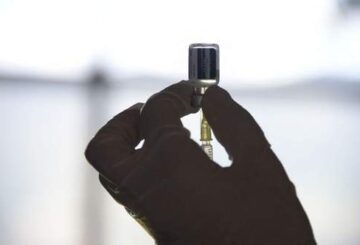 A leaked memo from Nigeria’s minister of state for Petroleum Resources has shown that irregularities in the state-owned oil giant remain entrenched, despite official vows to root out the “cancer” of graft.
A leaked memo from Nigeria’s minister of state for Petroleum Resources has shown that irregularities in the state-owned oil giant remain entrenched, despite official vows to root out the “cancer” of graft.
Emmanuel Ibe Kachikwu wrote to President Muhammadu Buhari to report on questionable practices in the state-owned Nigerian National Petroleum Corporation.
Five NNPC contracts, with a total value of $25bn, “were never reviewed by or discussed with the board,” according to the letter published in local media.
“There are many more, your excellency,” it added.
The NNPC is saddled with the reputation of being the historical slush fund of the country’s governments, whether democratically elected or military.
The company, working in joint ventures with foreign oil majors, accounts for more than half of Nigeria’s daily oil production of about two million barrels per day, estimates Benjamin Auge, a researcher associated with a French think-tank, the French Institute of International Relations.
– Massive corruption –
One of the biggest graft scandals in Nigerian history came to light in 2014, when central bank governor Lamido Sanusi revealed that the equivalent of $18bn had disappeared from state coffers between 2012 and 2013.
Sanusi was removed from office, but the scandal and disclosures of large-scale looting of national assets were instrumental in the electoral defeat of President Goodluck Jonathan in 2015, in favour of Buhari, who fought on a clean-hands ticket.
Buhari’s critics say his anti-corruption campaign is targeting only opposition figures – a charge that is likely to carry weight in the light of the leaked letter.
The letter appears to point to Kachikwu’s deepening frustration.
“I have been unable to secure an appointment to see you despite very many attempts,” Kachikwu wrote to Buhari, who is oil minister as well as president.
His missive was dated from late August, though until now the public was unaware of its existence.
No visible action has been taken, and the NNPC’s Group Managing Director, Maikanti Kacalla Baru, whose governance of the oil giant is clearly in the memo’s firing line, remains in office.
Auge suggested that Baru was appointed in 2016 in order to “isolate” Kachikwu.
Baru, an NNPC insider, is a complete contrast in personality and career profile to the outsider Kachikwu – a Harvard-educated southerner who came to the NNPC through the private sector, where he was ExxonMobil’s deputy chief for Africa, Auge said.
“The machinery which enabled corruption in the NNPC has not been switched off,” he said. “The only thing that has changed is the networks of influence.”
– Factional divide? –
Kachikwu was given a dual appointment in 2015 as minister of state and NNPC’s group managing director in the declared aim of making the company’s business less murky and corrupt.
At the time, investors in the oil sector cheered his appointment as a potential sign of changing times.
Today, though, suspicions are deepening of a factionalist divide within the government along regional lines, and of little appetite to cleanse the NNPC of the taint of corruption.
Baru through his long career at NNPC had built a network of political contacts, said a Nigerian financial analyst specialising in the oil sector.
The 58-year-old was named in 2016 “just because he was from the north,” the analyst said. “Buhari has a northern agenda, you can’t rule that out.”
Jonathan’s party, the People’s Democratic Party (PDP), which is now in opposition, on Thursday called for Baru to be suspended, adding that a “loud silence” weighed on Buhari for the implications of sleaze hanging over the NNPC.
Kachikwu met with Buhari on Friday, offering only a terse “no comment” after the talks.
“I don’t think Kachikwu will be fired, it would be a very bad move for the investors, but he might not be part of the government after the 2018 cabinet reshuffle,” said the analyst, who requested anonymity in order to be able to speak freely.
“We are still sitting on the same corrupt system that existed before Buhari came into power,” the analyst said. “Nothing has changed.”




